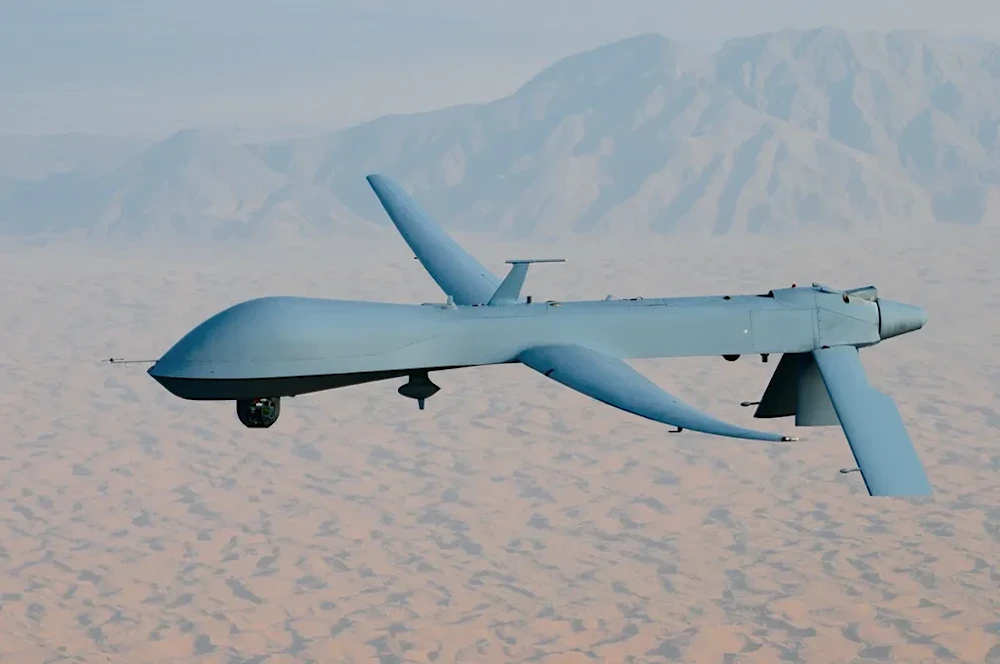Northrop Grumman partners with tech company to develop AI drones
The US-based military giant says the new collaborations aims to improve drone capabilities using artificial intelligence.
-

Illustrative photo of an American MQ-9 drone flying in an unknown area, picture published in 2023 (AFP)
Northrop Grumman announced on Wednesday a new partnership with EpiSi to enhance the artificial intelligence (AI) capabilities of Unmanned Aerial Systems (UAS).
According to the US-based weapons and technology manufacturer, this collaboration aims to improve the performance and functionality of these systems using AI technology.
Read more: IOF’s use of AI in Gaza genocide maximizes risk of killing civilians
"Northrop Grumman is collaborating with EpiSci to further develop advanced, trusted autonomous tactical solutions for the United States and its allies," a press release said.
The company plans to incorporate EpiSci's TacticalAI software into its aeronautics system architecture to accelerate the deployment of advanced autonomous solutions, enhancing the capabilities of its drones.
Northrop Grumman stated that this move will lead to the creation of drones capable of adjusting to evolving mission needs, which will offer military leaders greater flexibility to operate in challenging and dynamic environments.
Read more: US concern over cost of intercepting Yemen's Red Sea attacks: Politico
AI drones and the future of global military power balance
A report publihsed last month by The Wall Street Journal pointed out on the potential impact of drones, particularly when used in swarms controlled by artificial intelligence (AI), on the future of warfare.
While this scenario is not yet a reality, it is approaching rapidly. The concern is that if armies are not ready for this shift in military technology and it is deployed extensively, it could significantly alter the global balance of military power.
The report says that the future of warfare will be shaped not by individual weapons but by interconnected systems of weapons working together.
These systems are expected to be more cost-effective. Many such systems already exist, but what is lacking at the moment are AI-directed systems that would enable a nation to conduct unmanned warfare on a large scale.
The report stated that while it is not feasible to manually pilot thousands of autonomous drones, the computational power of AI makes the concept of such swarms achievable, and this will "transform warfare".
Read more: Sources to Al Mayadeen: Drones bypassed US air defense systems
It suggested that the key competition will be for the most effective AI systems rather than the best physical platforms, and the side with superior AI-driven decision-making, particularly in managing swarms of drones, will have the advantage. This represents a shift toward a conflict of AI systems, or a "brain-on-brain" conflict.
"Much like the nuclear arms race of the last century, the AI arms race will define this current one. Whoever wins will possess a profound military advantage," the newspaper concluded.

 3 Min Read
3 Min Read








